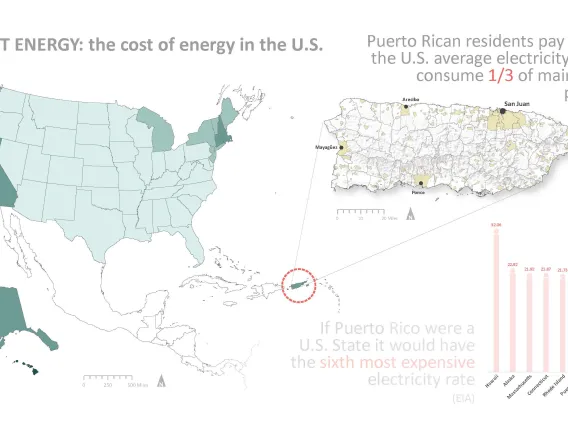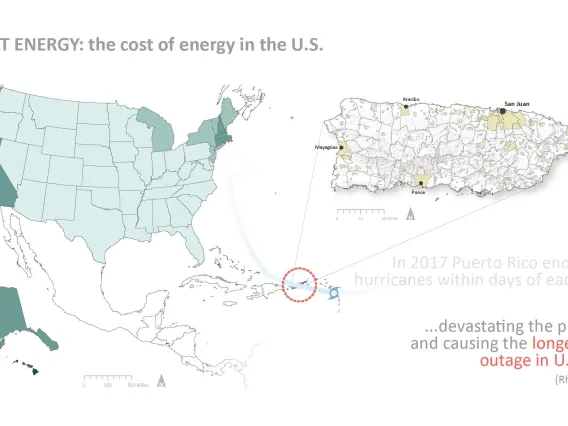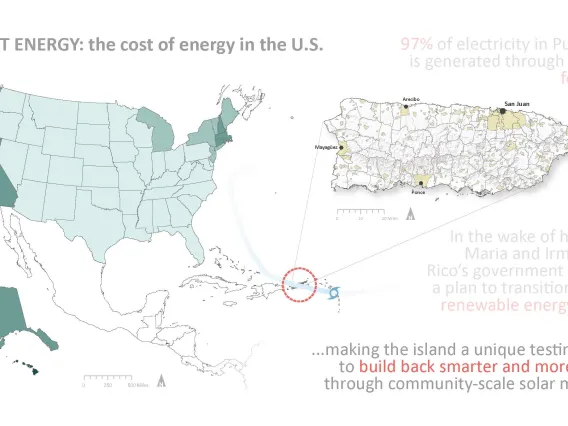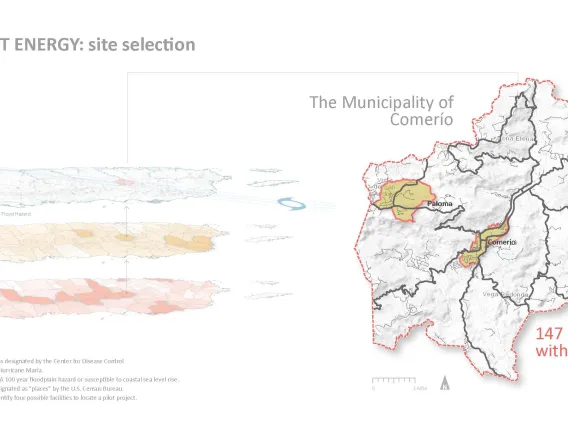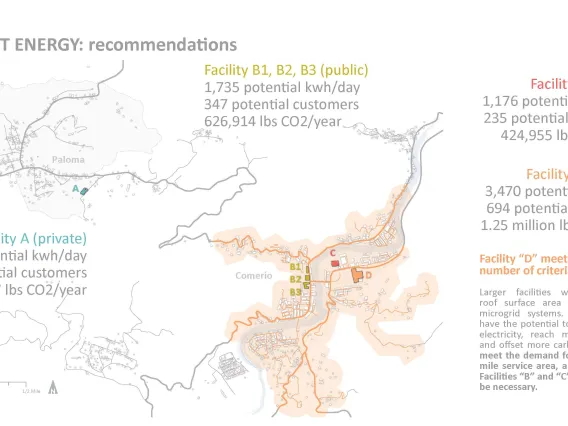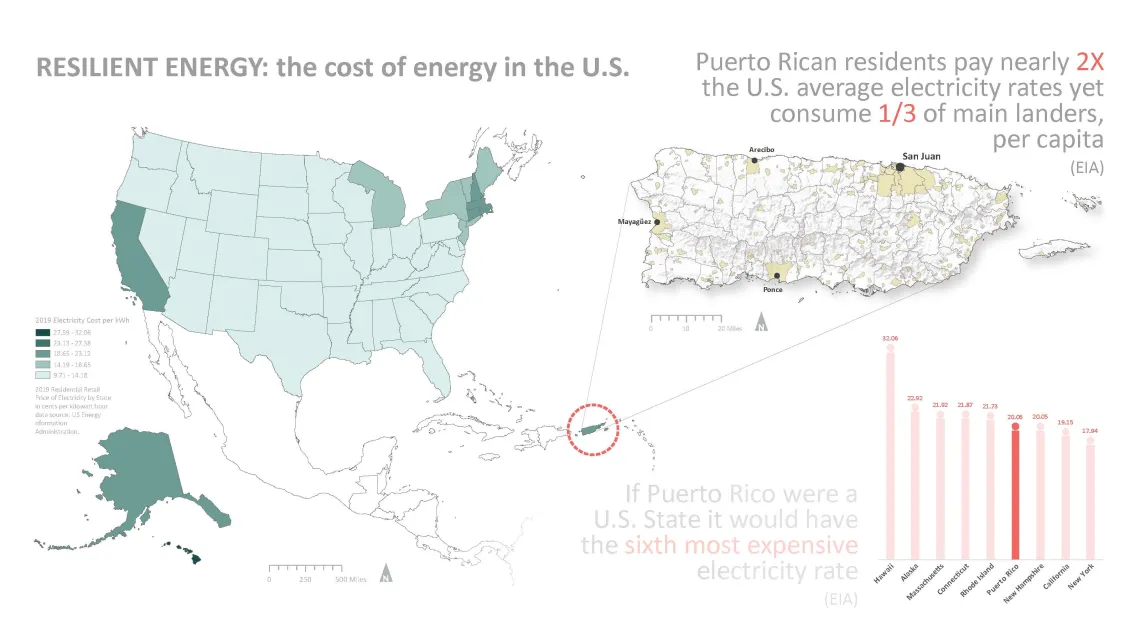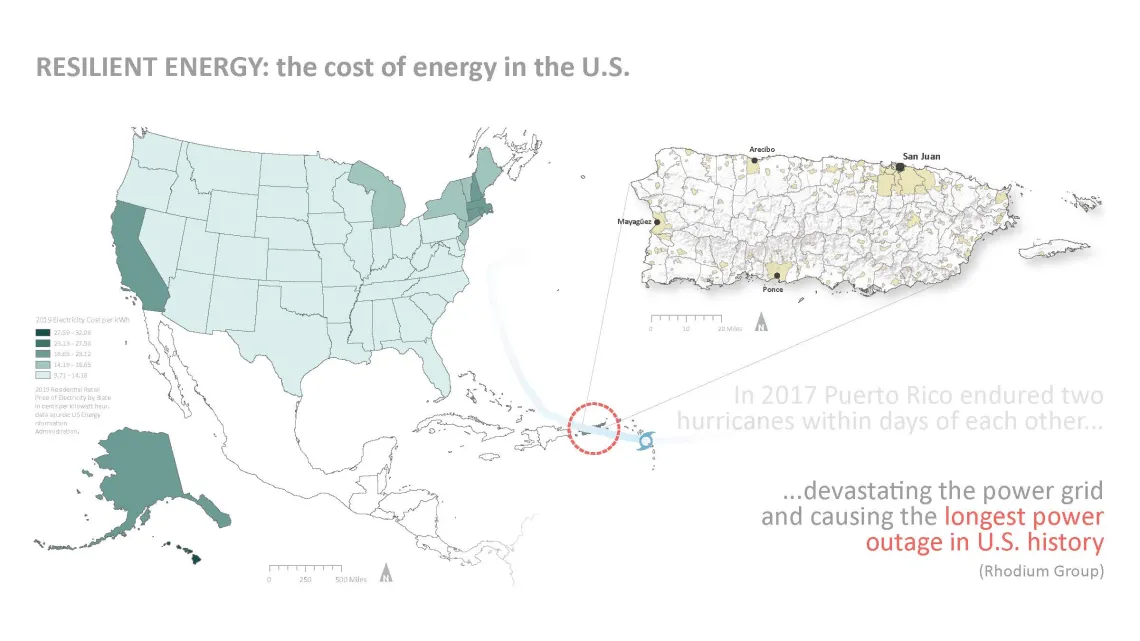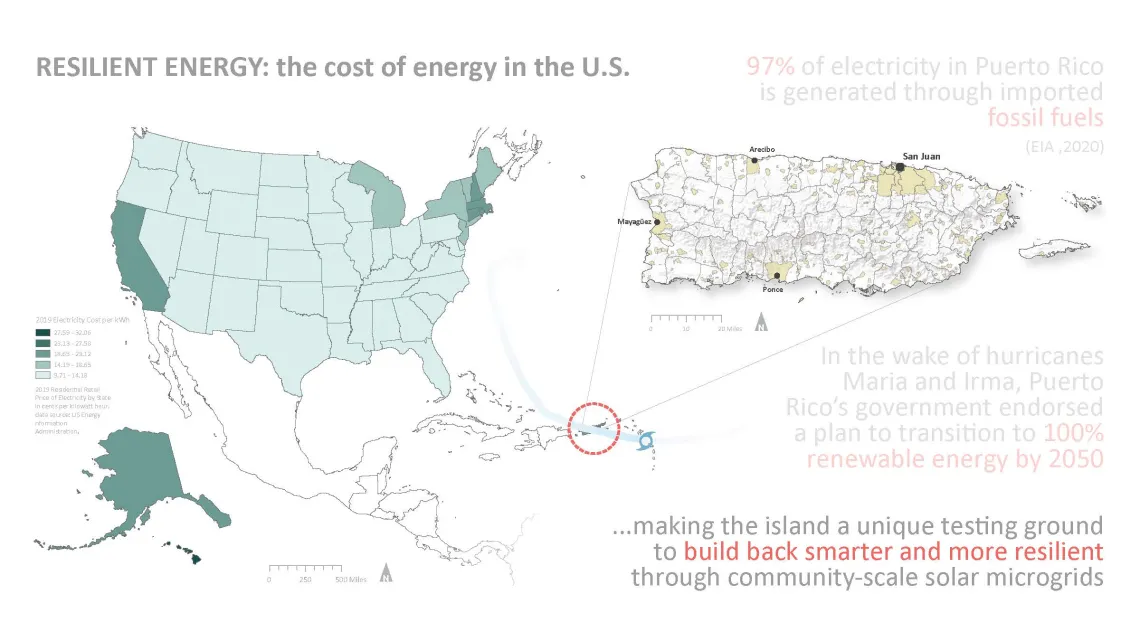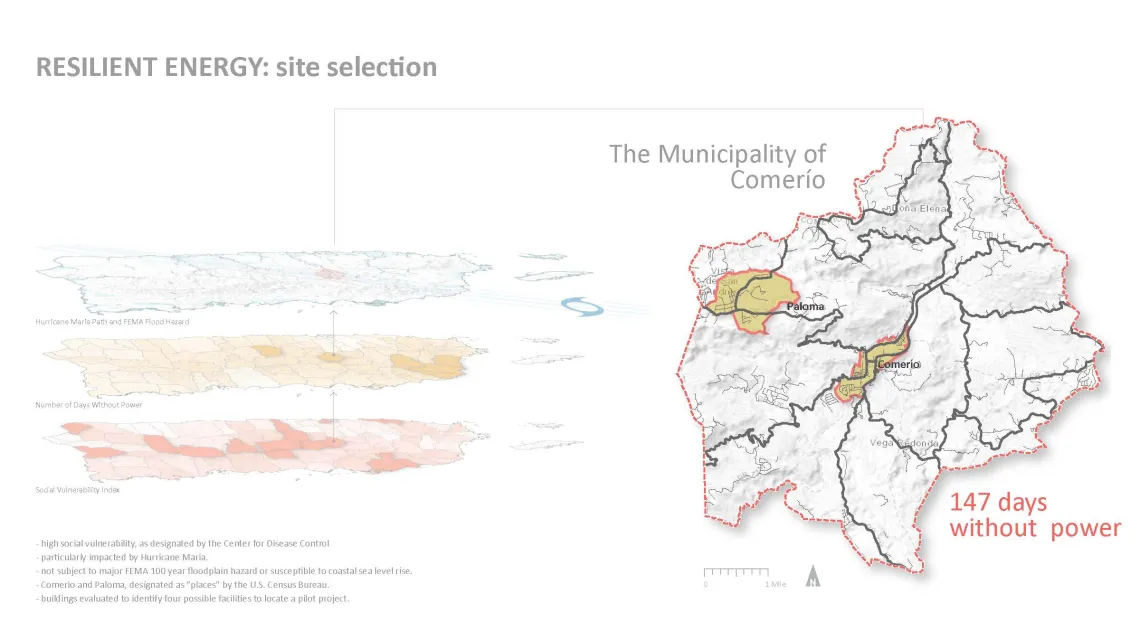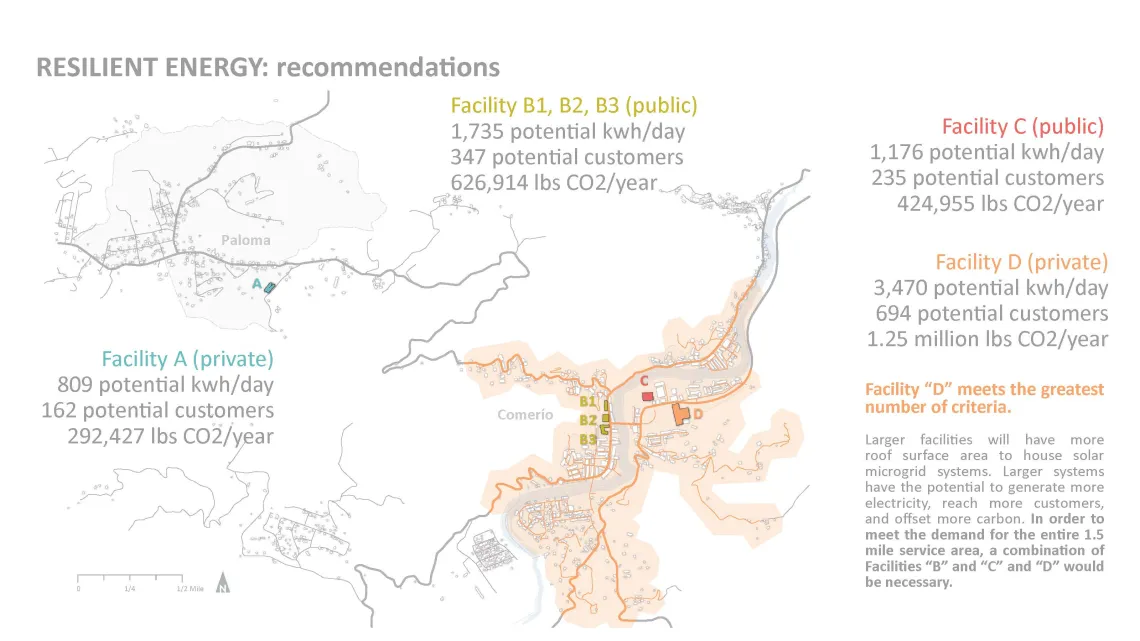MS Urban Planning Student Envisions Resilient Energy Prioritization Tool for Post-Hurricane Puerto Rico
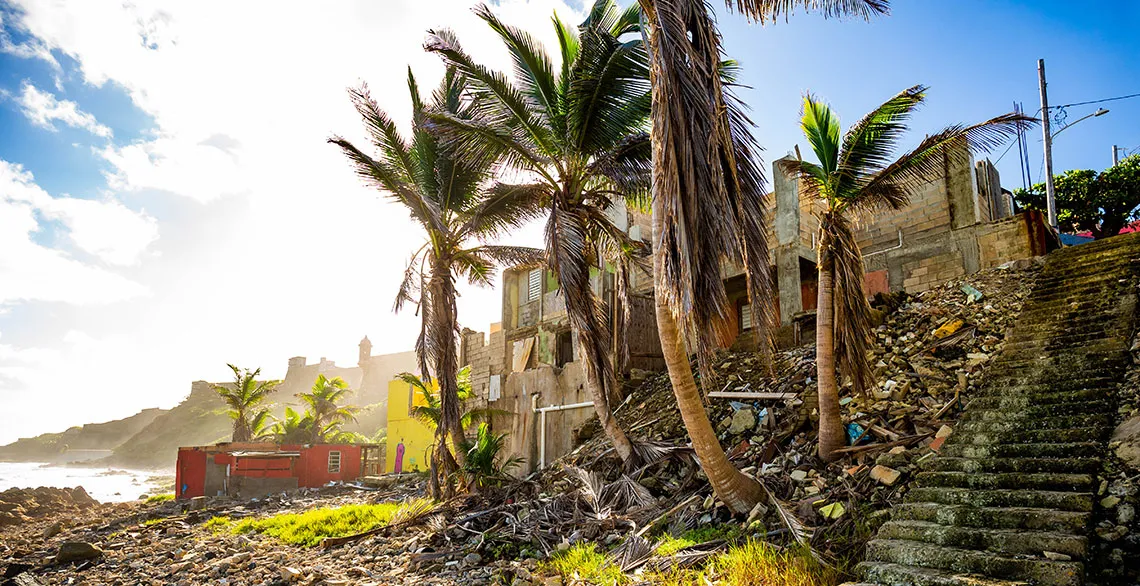
Damage to houses on the Puerto Rico coast after Hurricane Maria. Photo by Photo Spirit, courtesy Shutterstock.
First-year Master of Science in Urban Planning student Chrissy Scarpitti was awarded first place in the 2021 Planning Excellence Competition for her geographic information systems (GIS) project Resilient Energy: Community-Scale Solar Microgrid Siting on the Island of Puerto Rico. The annual competition, sponsored by Friends of Planning, is intended to spotlight high-quality student work, foster enrichment of the graduate student experience and facilitate mentoring through evaluation and feedback of student work efforts by locally practicing planners.
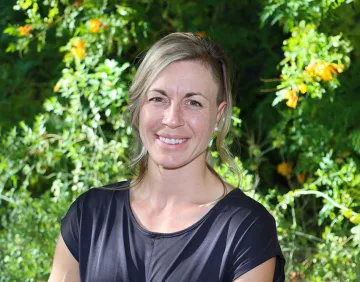
Chrissy Scarpitti '22 MS Urban Planning
Scarpitti’s winning project utilized GIS data to determine the best sites for piloting community-scale microgrid projects on the island of Puerto Rico, whose power grid was devastated by hurricanes Irma and Maria in 2017. This resulting power outage, the longest in U.S. history, prompted local government officials to endorse a plan to transition to 100% renewable energy by 2050.
Scarpitti, a returned Peace Corps volunteer who served for two years in Guatemala, had been yearning to combine her experience in international development and design with her passion for addressing climate change. During her participation in a previous design competition for the city of Santa Fe, New Mexico, she learned about smart micro-grid technology and wanted to explore its potential in other applications. The vision for her project solidified when two classmates with ties to Puerto Rico described the devastation and extensive power outages that plagued the island, and she felt that she had found an ideal test case.
Throughout the course of her research, Scarpitti learned about some unique aspects of Puerto Rican culture that could potentially limit the success of a top-down solution in restoring power to the island. Scarpitti’s classmate Amanda Leinberger, adaptation program manager for the Center for Climate Adaptation Science and Solutions and a PhD candidate in the Arid Lands Resources Sciences program, put her in touch with an urban planner in San Juan who explained that divergent ideologies regarding U.S. statehood and independence result in some rural communities rejecting federal assistance and support from the mainland.
“This surprised me but shed light on the critical importance of local knowledge and expertise, especially in cross-cultural projects,” says Scarpitti. She recognized that a project like this could only succeed with a great deal of consultation, input and buy-in from local communities.
Scarpitti was able to leverage the expertise of urban planning professors Philip Stoker and Kristina Currans, who helped her use quantitative analysis to apply her design skills to a project that she says felt meaningful. Throughout the project, she devised methods with enough flexibility that they could be applied to any geographic area, particularly rural communities with limited resources and vulnerabilities to climate change and natural disaster. Gathering and interpreting this amount of data was complex, and “the project felt like a thousand-piece puzzle that came together at the 11th hour,” she says.
Although Resilient Energy is complete, she imagines where she would go next if given the opportunity: “I feel proud of how it turned out but would also love to get more critical feedback on the methodology, and conduct fieldwork to see if this tool could help support local nonprofits in Puerto Rico that are implementing solar projects on the ground.”
Resilient Energy: Community-Scale Solar Microgrid Siting on the Island of Puerto Rico | Chrissy Scarpitti '22 MS Urban Planning
Click an image to view in larger size and begin slideshow:

